Rissi Palmer on opening doors for marginalized artists in country music
Rissi Palmer re-appeared on the Grand Ole Opry 10 times faster in 2022 than the nearly 5,000 days between her 2021 performance and her 2007 debut.
This is one of many reasons why the 41-year-old country music star is being highlighted on the "American Masters: In the Making" series with "Rissi Palmer: Still Here," debuting March 24 at 8 p.m. CT on PBS stations, pbs.org/americanmasters and the PBS app.
Filmed by Durham, North Carolina-based multicultural filmmaker Dilsey Davis between March and September 2022, the documentary highlights Palmer's tumultuous first decade and eventual career revival, as the singer-songwriter works on her fourth studio album and simultaneously works to uplift other artists of color in the Americana and country genres.
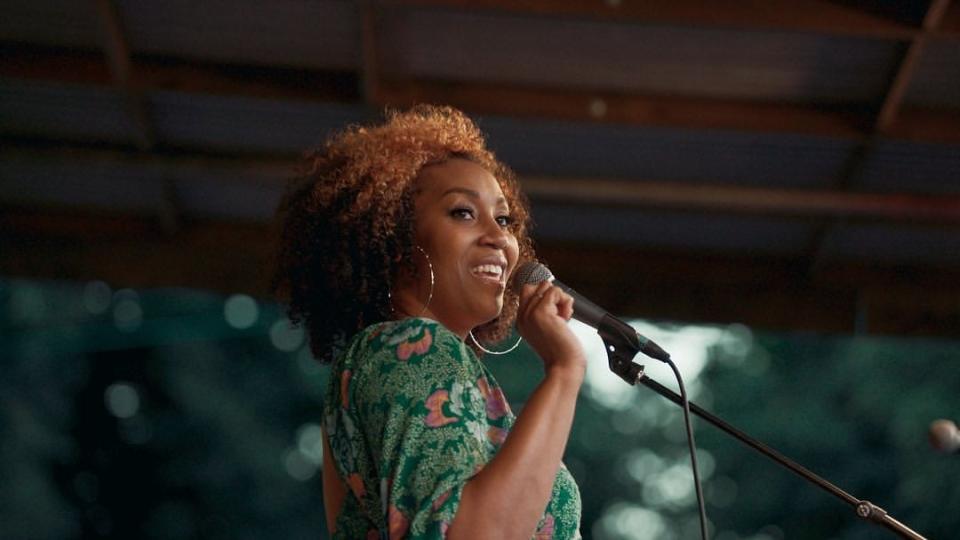
The past year has seen Palmer's Apple Music Radio "Color Me Country" program evolve into a world-renowned brand, supporting Black and marginalized country music artists, integrating itself into downtown Nashville event spaces for songwriting rounds.
She also appeared at festivals in the United Kingdom, including August's Long Road Fest, where multicultural, multigenerational "Soul Train" dance lines occur during live sets bearing the appearance of turn of the 20th century Christian tent revivals.
The documentary shows Palmer at home with her daughters, as well as exclusive footage of the artist honing her craft two decades ago as an aspiring R&B artist-turned Top 50 Billboard country star.
The line between R&B and country is a treacherous and dangerous one to navigate for many Black female country artists, Palmer included.
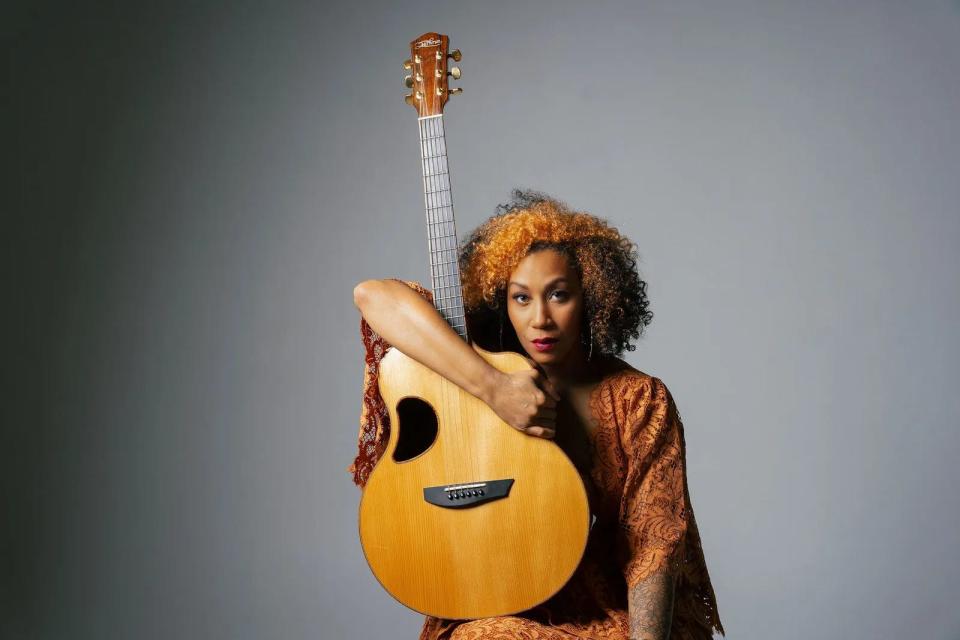
While, yes, Beyonce? can perform "Daddy Lessons" with the Chicks at the 2016 CMA Awards, that doesn't necessarily mean that the space between genres exists for all Black artists.
"I was a 17-year-old Black girl from St. Louis who listened to the Chicks and the Judds but had to make a pop/R&B demo in 1998 because I'd never seen anyone who looked like me in [country music]," Palmer recalls.
In the mid-2000s, Palmer was following two notable Black female country stars — Linda Martell (1969's "Color Him Father") and Dona Mason (1987's "Green Eyes [Cryin' Those Blue Tears]"). However, she felt deterred because there was not a plethora of other hyper-visible mainstream Black female faces.
More music:Junior Brown returns to Nashville for two nights at Station Inn
'Stoned Cold Country':Nashville pays tribute to the Rolling Stones
Since her 2007 country debut — and followed by Mickey Guyton's steadfast presence in the genre's establishment since signing to Universal Music Group's Nashville office in 2011 — Palmer highlights a unique notion about their visibility.
For two decades, she's been inundated by many Black country fans who cite her continued work as a country artist as important if only because they had family members who wanted similar careers that did not happen.
"I still get sent decades-old records from people who think that the marketplace didn't exist for them to [participate in country music]," Palmer says. "I can't believe how common the story of people who have had their dreams denied actually became prior to my [work].
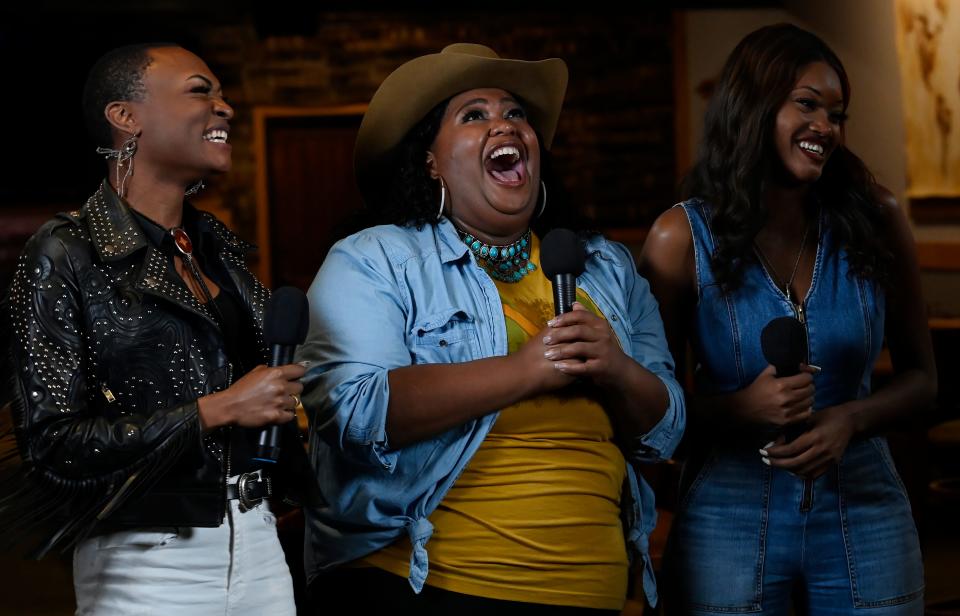
"Representation really does matter."
One of the documentary's highlights is when Pembroke, North Carolina-based Indigenous singer Charly Lowry, of Lumbee Tuscarora descent, banged her hand drum before playing at the Long Road Fest in Leicestershire, England.
"People's mouths were open," says Palmer. "It was a thing. She put her fist in the air and began to beat that drum. It set the tone for the rest of the day.
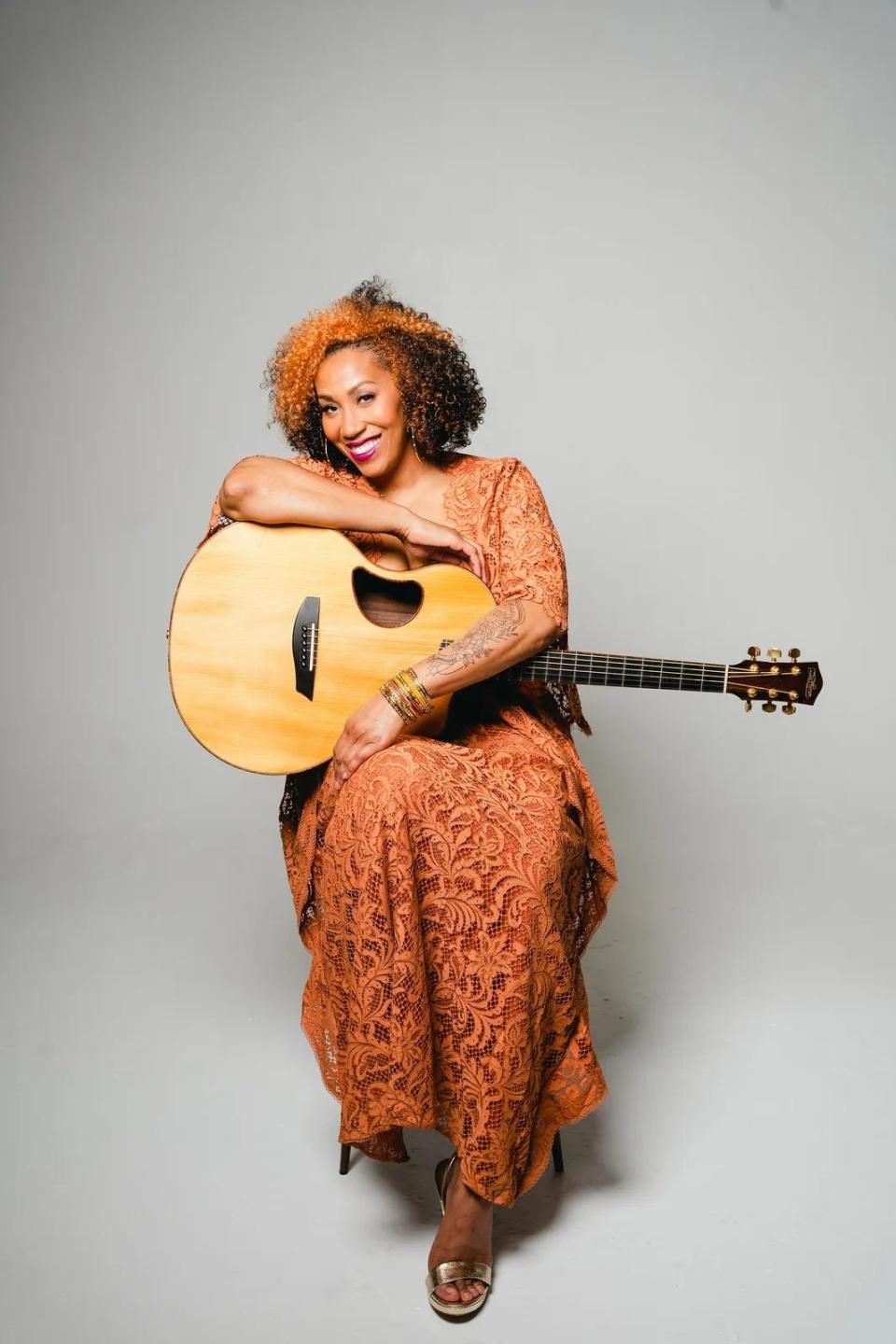
Perhaps when contemplating how the depth and scope of Palmer's success is bridging gaps in country and Americana for Black artists and inspiring advancement for Latin, Asian, queer and other marginalized populations in both genres, that drumbeat resonates with greater depth.
As her mainstream Americana and country career renaissance enters into a half-decade of renown, Palmer says she's more comfortable with her ability to open doors for artists desiring representation and visibility.
"I'm covering all colors, all people," the veteran artist says.
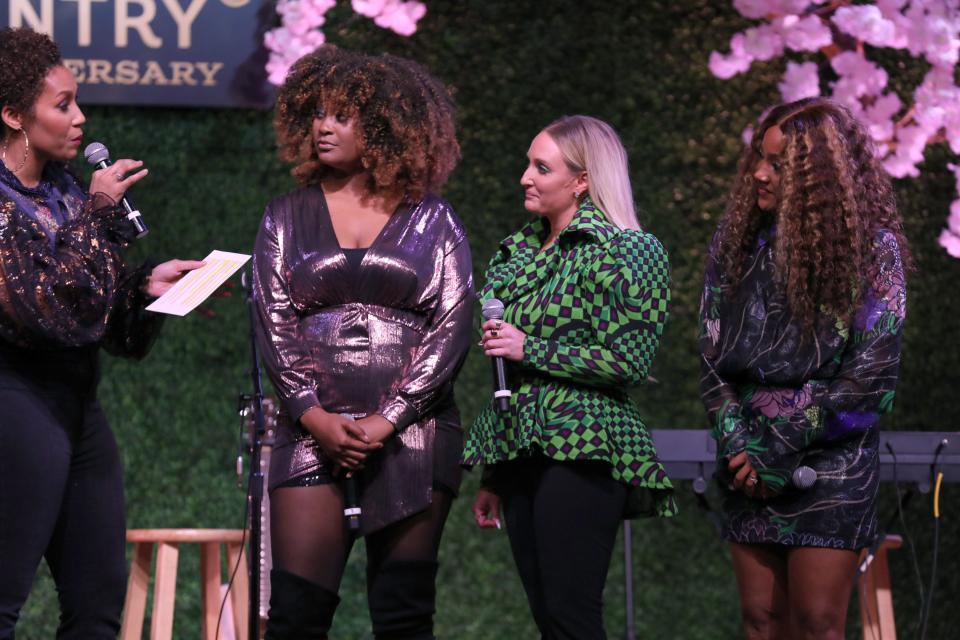
When asked to contemplate how her experiences color the advice she offers aspiring artists, she wistfully pauses and changes the question's direction. Instead, she notes that if possible, she would turn back the clock 15 years and give herself the following advice:
"Girl. You're young. You don't know everything. Let me list everything you're doing wrong; I hope you can correct these things quickly. You've got people like ['80s-era country singer-songwriter] Deborah Allen, Songplanet Publishing and so many fairy godmother-types in your corner. Be more deliberate and calculated in all the things that you do."
Palmer's level of composed calm turns into unabashed laughter when asked about her forthcoming tour and May 18 date at Nashville's City Winery with Miko Marks, another resurgent, mid-2000s-era, aspiring Black female country star.
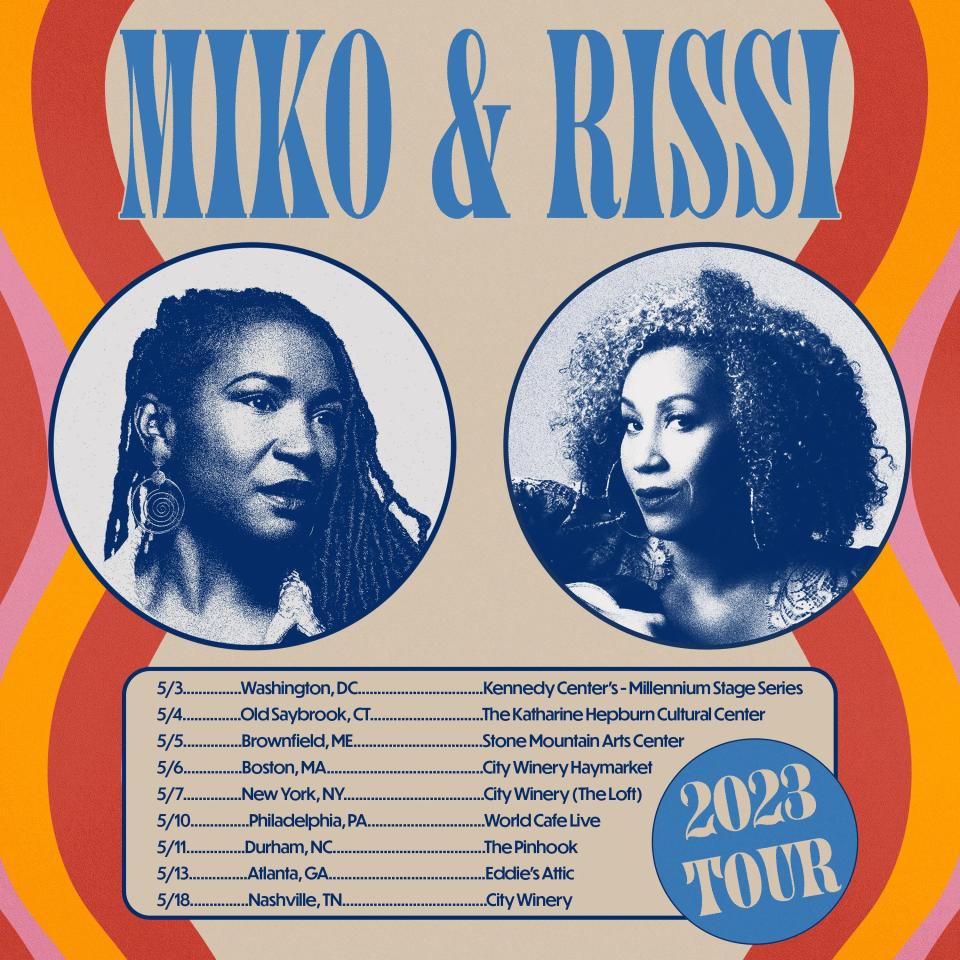
"We might bring fireworks; we're going to put on a helluva show," Palmer says.
"This movement has become an incredible, spiritual and career-reaffirming legacy quest that kept me from giving this all up and learning how to crochet," Palmer says with a smile. "My years of hard work, sacrifice and being concerned about my family's worries about whether or not I was making the right decisions have paid off. I feel validated on my own terms.
"I long for a world where there is no preamble or pretense placed in front of any marginalized person's name in country music," she continues.
"Anyone who wants to be a country singer deserves to be a country singer. If someone tells you differently, well, how I feel about that can't be printed in The Tennessean."
This article originally appeared on Nashville Tennessean: Rissi Palmer on American Masters, opening doors for aspiring artists
Solve the daily Crossword

